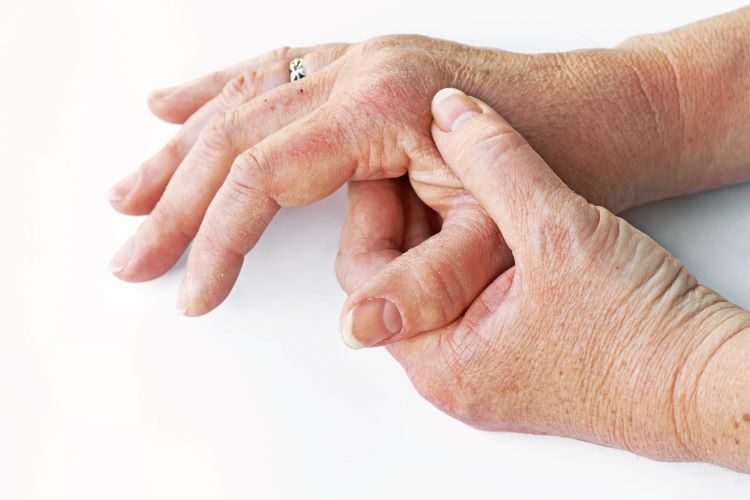Susan, a vivacious woman in her late sixties, had been knitting for as long as she could remember. Her grandmother taught her when she was a little girl, and it was a relaxing activity that she enjoyed throughout her career and into her time as a grandmother herself. She was an avid member of the local knitting community and joining the weekly Knitting Crew as they called themselves was the highlight of her week. They would catch up on the latest news and stories and would work out ways to create new patterns. They also did an annual drive to make little hats for premature and ill babies in the local children’s hospital. The activity was a core part of her life, and it provided her with much joy and companionship.
Susan had noticed some issues with her hands and knitting was sometimes difficult. She was getting frustrated with several changes she was encountering in her life, so she went to her physician who then sent her to a specialist. After many tests and discussions with several doctors, she had a meeting with a review team who gave her news that shook her to her core. She has ALS (amyotrophic lateral sclerosis), also known as Lou Gehrig’s disease. It was a brutal diagnosis. The physician discussed that there isn’t a cure, and it can be quick progression in symptoms.
It is a neurological disease that attacks the nerve cells in the muscles that we can control in our body. When those nerve cells die then we lose the ability to control those muscles and they atrophy. The average lifespan after diagnosis is 2 – 5 years. As the ability to move the muscles degenerates, the mind remains sharp, so it is a brutal process. Susan was distraught as the one thing that reduced stress in her life was going to be an impossibility in what seemed like a very short time.
She pictured how lonely her life would be without her Knitting Crew and she really couldn’t stand how isolated she felt already. When she went to knit with the group on Wednesday night, she told them about her diagnosis and what the doctors said was going to happen. Her friends were all noticeably sad and cried with her. They were so compassionate and loving and the entire evening turned into a discussion about how they could support her. Before she left, she felt so loved and encircled in their care.
They made a plan that they would take lunch to her twice a month and everyone would just sit and eat with her and visit and share the stories of their lives as they always did at Knitting Crew. Once a month they would all go to her house for the Knitting Crew as they did now and would not take her out of the rotation even when she couldn’t knit. They would share their projects with her, and they knew that they could ask her for advice or notes about how to handle certain patterns. Once a month they would also go on a Sunday and have a monthly brunch. They would check in with her about what she could eat and would make sure there was something good for everyone there.
As the disease progressed and Susan was unable to do the things she used to do, she appreciated her friends and support system. They were true friendships built on love and were an important part of avoiding her social isolation. She looked forward to their visits and loved that they cleaned up when they were done. It gave her husband a chance to take a bit of respite and watch a game or go visit with his guy friends. It was the most loving situation she could have imagined, and it brought her a lot of joy.
When it was time to take the hats to the Children’s Hospital, they rented a wheelchair van and brought Susan along with them. It meant so much to her and she loved seeing the little babies.
Life changes and social isolation can really affect your wellbeing. If you find yourself in a healthcare situation, physical, emotional, or mental, and you need help from a care advocate, reach out to us, we will help make sure that you do not become isolated and that you receive the best care possible. Please give us a call at 610-667-2838 or email us at CareManagement@waverlyheights.org to find out more.

